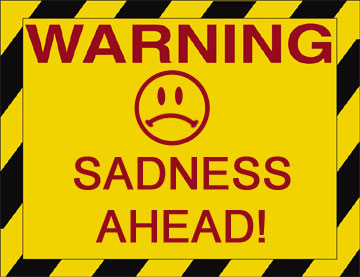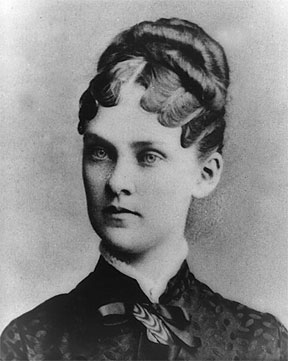|
Sadness; Reflections on Sadness; Unhappiness; Sad
Reflections on Sadness
by Rev. Dr. Mark D. Roberts
Copyright © 2008 by Mark D. Roberts
Note: You may download this resource at no cost, for personal use or for use in a Christian ministry, as long as you are not publishing it for sale. All I ask is that you give credit where credit is due. For all other uses, please contact me at mark@markdroberts.com. Thank you.
A Word of Warning
Part 1 of series: Reflections on Sadness
Permalink for this post / Permalink for this series
My Dear Reader,
Today begins a blog series on sadness. Yes, I know we’re in the midst of the holiday season, full of “merries” and “happies.” And, yes, I’m a big fan of “Joy to the World” and all of that. In fact, I’m not especially sad right now. And, in general, these days I’m about as happy as I’ve ever been in my life.
 Nevertheless, I want to offer some reflections on sadness. So I’m beginning with this word of caution. If you don’t want to think about sadness right now, you might want to stop reading and return to my website in a few days. I’m not expecting to make you sad by what I will write, but who knows? So if you’re in a sadness-avoiding mood, watch out. Nevertheless, I want to offer some reflections on sadness. So I’m beginning with this word of caution. If you don’t want to think about sadness right now, you might want to stop reading and return to my website in a few days. I’m not expecting to make you sad by what I will write, but who knows? So if you’re in a sadness-avoiding mood, watch out.
Yet, I actually think there’s much to be gained by paying attention to sadness . . . sadness in general as well as our own melancholy feelings. It’s perfectly natural to feel sad, after all. Every human being experiences unhappiness ever now and then. If we’re unwilling to deal with this, we end up living incompletely. Denial might seem to produce a happier life, but, in the end, I think it limits the richness and depth of life. Without sadness, we are not fully alive.
I say this as one who was raised in a family that didn’t do well with sadness. When I was growing up, if somebody in my family was unhappy, my job was to “cheer them up.” The implicit message was clear: Sadness is bad. It’s to be avoided. Don’t be sad. And don’t let others be sad, either.
One of my grandmothers exemplified my family’s allergy to sadness. I don’t remember her ever admitting to having sad feelings, though I’m sure she had them. I do remember, however, something she said to me probably a thousand times, “Make somebody happy, and you’ll be happy too.” Worse still, I recall a ditty she used to sing to my siblings and me whenever we were unhappy:
I saw a bird in the top of the tree,
And this is what he sang to me,
“God loves us all in a wonderful way,
Be happy, be happy, be happy today!”
You can imagine just how much gladness this song actually inspired. Ugh!
I saw the unfortunate results of my grandmother’s inability to deal with sadness after my father (her son-in-law) died in 1986. His death was indeed a cause for sadness, even though my family and I were glad that he was with the Lord after his death. My dad suffered greatly in his last year of life, as liver cancer ravaged his body. He died at the age of 54, leaving my mother and four children way too early. You can imagine how sad we felt (and still feel sometimes).
But my grandmother just couldn’t deal with our response to my dad’s early death. When her efforts to cheer us up didn’t work, she didn’t know what to do or say. As far as I can remember, she never mentioned my dad after his death. I don’t think she ever said something like, “You must miss your dad” or “It’s too bad Dave isn’t here with us.” It was as if he never existed. Now I believe my grandmother was in fact quite sad over my dad’s death. And I’m sure she felt lots of sympathy for my family and me. But decades of denying sadness left her unable to be with us in our pain.
My grandmother lived, all things considered, a very happy life. But I think she missed out on some of the fullness of life because of her inability to deal with sadness. I know for sure she missed out on the deep personal connection that comes when we share sadness with others. Ironically, I think my grandmother’s denial of sadness actually made her life less happy, not more.
Some of my readers will, no doubt, think that my grandmother was extremely odd. Others understand her completely. Perhaps you were raised in a family like mine, with relatives just like my grandmother. But, whether you “get” my grandmother or not, I do want to say a couple of words in my her defense.
First, she was one of the finest people I ever knew, someone who contributed significantly to family, church, and community. She raised two excellent children and helped me more than any other person to be a visionary leader and confident public speaker. My grandmother taught a popular high school class at her church for many, many years. She served on the local school board (without compensation or reimbursement) for sixteen years. Late in life, my grandmother was recognized as “churchman” of the year in Glendale, California. So her inability to deal with sadness did not keep my grandmother from making a tangible difference in the world.
Second, my grandmother was, herself, a product of her own family and culture. She didn’t make up her “Be happy” philosophy of life. It was bred within her, and nurtured by her culture. American culture, I believe, tends not to be very good in dealing with sadness. In my next post I’ll explain what I mean.
Sadness in American Culture
Part 2 of series: Reflections on Sadness
Permalink for this post / Permalink for this series
In my last post I described my grandmother’s inability to deal with sadness. If someone was unhappy, my grandmother’s goal as to “cheer them up.” Thus, when truly sad things happened in her life, like the early death of my father, my grandmother was stuck relationally and emotionally.
She did not invent her aversion to sadness, however. It came to her through her own family of origin and was strongly reinforced by her culture. American culture, in general, has a hard time dealing with sadness.
 I remember once reading a biography of Teddy Roosevelt. It described the tragic death of his young wife, Alice, who lost her life two days after giving birth to their daughter, also named Alice. To add to this tragedy, TR’s mother had died earlier that same day. Of course we can only imagine the depth of TR’s sadness. Yet, after writing a brief tribute to Alice Sr., he never again mentioned her. Never. In fact, he never spoke with his daughter about her own mother. The only way TR knew to deal with such emotional pain was to ignore and deny it. (Photo: Alicae Hathaway Roosevelt, first wife of TR) I remember once reading a biography of Teddy Roosevelt. It described the tragic death of his young wife, Alice, who lost her life two days after giving birth to their daughter, also named Alice. To add to this tragedy, TR’s mother had died earlier that same day. Of course we can only imagine the depth of TR’s sadness. Yet, after writing a brief tribute to Alice Sr., he never again mentioned her. Never. In fact, he never spoke with his daughter about her own mother. The only way TR knew to deal with such emotional pain was to ignore and deny it. (Photo: Alicae Hathaway Roosevelt, first wife of TR)
Lest you think that people like TR and my grandmother are exceptional, I can tell you from years of pastoral experience that many, many people, perhaps most, are unsure of what to do with their sadness. I’ve been in dozens of funerals, for example, when a relative of the deceased stands up to share some words of remembrance. During the speech, the loved one begins to cry. What does he or she say? “I’m sorry. I’m sorry.” The implicit message? “Any expression of sadness at this moment is inappropriate.” Sometimes I want to stand up and shout: “You just lost your beloved wife of forty-five years, for goodness sakes! Of course you’re sad. So just cry for a while. Don’t worry about it. We’re all with you in this.” But I don’t do that. Yelling at the grieving in a memorial service isn’t optimum pastoral care.
I first became aware of the American inability to deal with sadness early in my pastoral career. I woman came to Hollywood Presbyterian Church because she needed to speak with a pastor and I was available. She shared with me that her mother had died four months ago in Poland, where this woman had grown up. She was missing her mother and had been feeling sad. But her friends kept trying to cheer her up. They expressed worry that her sadness was extreme or unhealthy. Some told her she should see a psychologist. Others began to pull away from her because they couldn’t cope with her sadness. “I just miss my mother,” she explained to me, “so I feel sad. In my town in Poland, everybody would understand. In fact, I’d have a whole year in which it was expected that I’d be sad. But, in this country, my friends want me to be better after only a couple of weeks. I can’t stand it.”
I knew enough about pastoral care at that point to avoid singing my grandmother’s “I saw a bird in the stop of a tree” song. I didn’t try to “cheer up” this woman who was missing her mother. I listened. I tried to empathize. I prayed for her. After our meeting was over, she left my office and I never saw her again. But what she said to me that day was seared into my memory. I started noticing all the ways we Americans fail to deal adequately with sadness. And I began to see how my own family, indeed, my own soul, had a hard time with feeling sad.
I should add at this point that I grew up in a family and sub-culture with roots in Great Britain and Northern Europe. When I speak of American culture, I’m thinking of this particular variety of our common life. I recognize, however, that American culture is far more diverse, and that many sub-groups have a much healthier approach to deal with sadness. Nevertheless, I think many of us Americans continue to have a difficult time dealing with sadness in ourselves and in others. We’re “sadness challenged,” if you will.
In my next post, I want to wonder out loud about why some of us have such a hard time dealing with sadness. As always, I’m interested in your insights, observations, and experiences. Feel free to offer your comments, or, if you wish, to send me an email.
|

